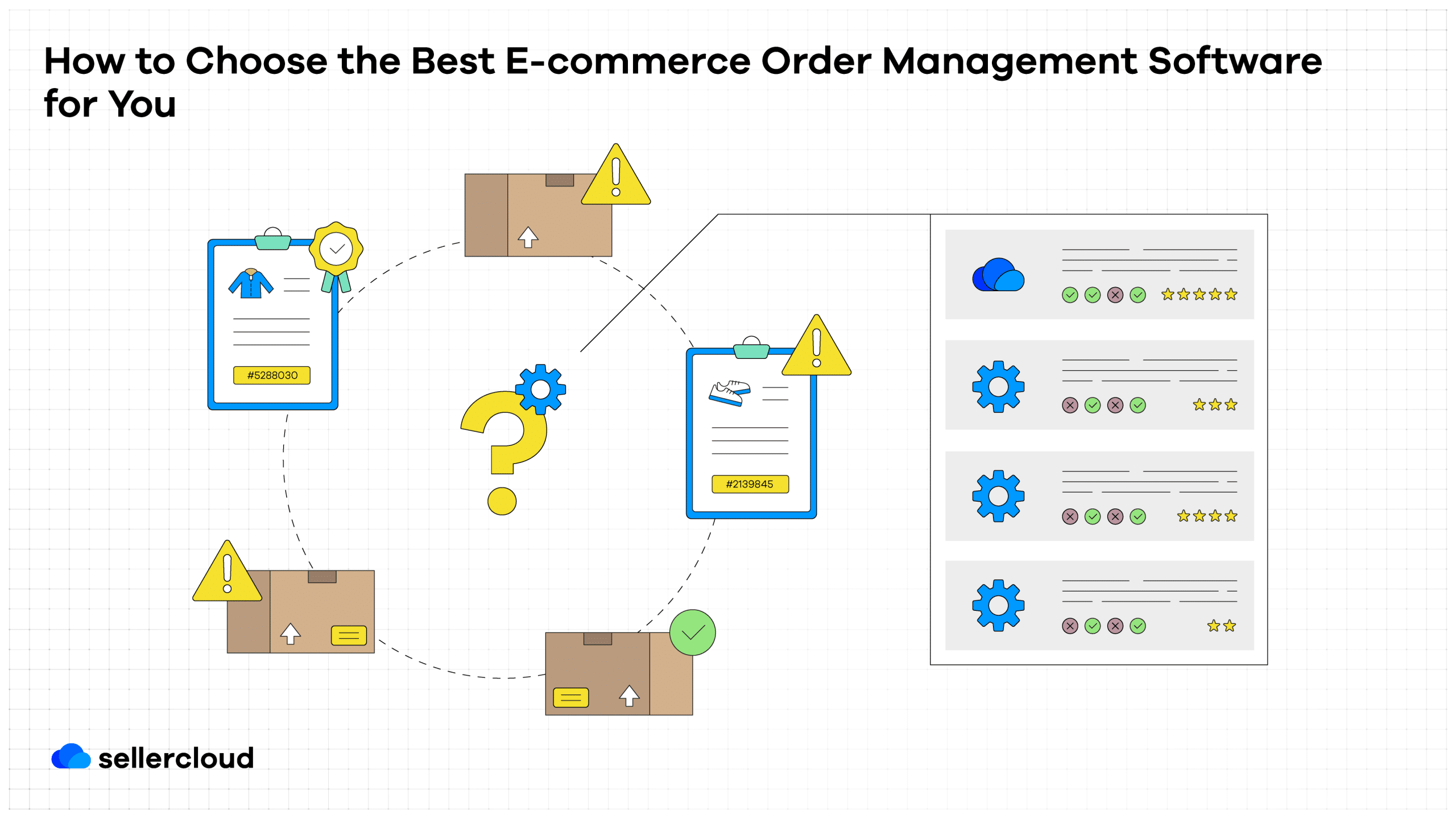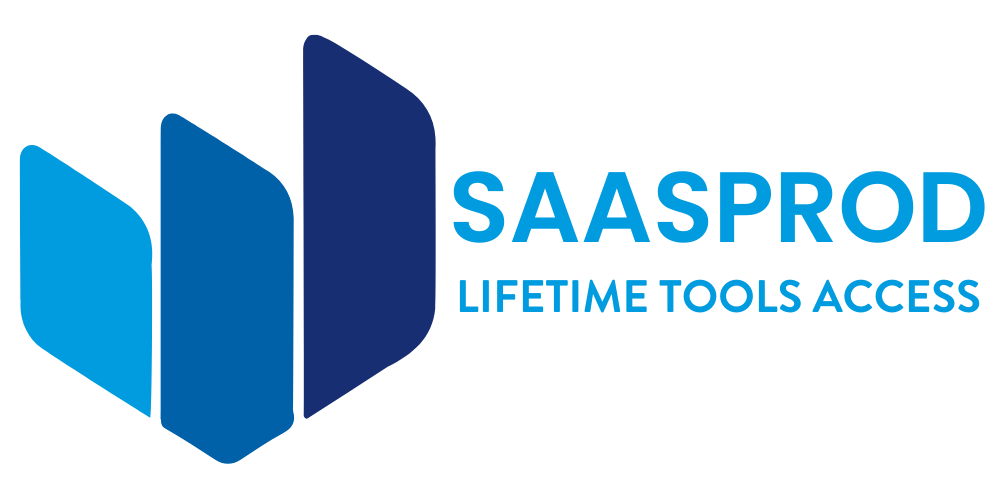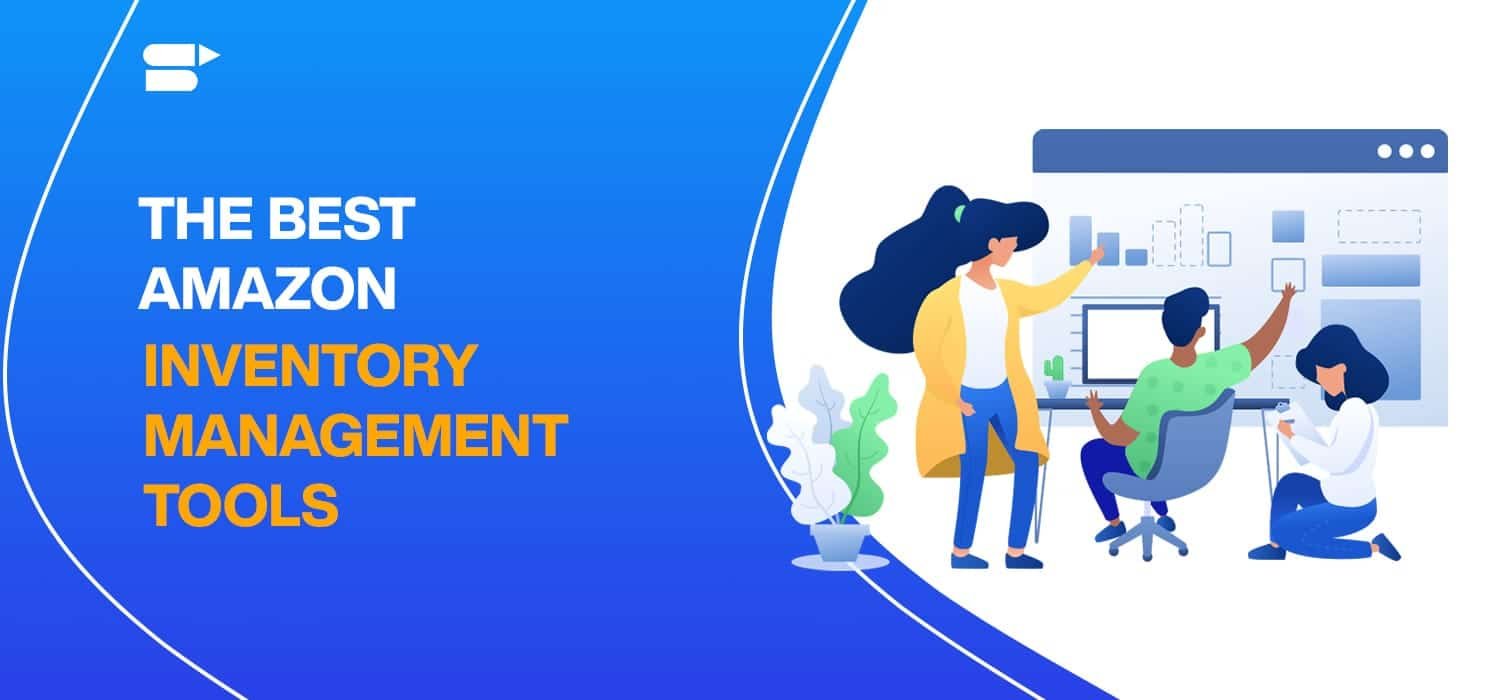In the world of ecommerce, managing everything effectively is crucial. The right tools can make a big difference.
Ecommerce management tools help streamline your business operations. They offer solutions for inventory management, customer service, and sales tracking. With so many options available, choosing the best tools can be overwhelming. This blog post will explore the top ecommerce management tools.
We will highlight their key features and benefits. This will help you decide which ones are best for your business. Whether you are a small startup or a large enterprise, the right tools can improve efficiency and boost your sales. Let’s dive in and find the perfect tools for your ecommerce needs.
Inventory Management
Inventory management is crucial for any ecommerce business. It ensures you have the right products in stock. This helps meet customer demands and avoids overstocking. Managing inventory well can save money and improve customer satisfaction. Let’s explore some top inventory management tools and their benefits.
Top Inventory Tools
Several inventory tools can help streamline your ecommerce business. Some of the best include:
- TradeGecko: This tool integrates with your ecommerce platform. It offers real-time tracking and analytics.
- Zoho Inventory: Zoho Inventory is user-friendly. It provides multi-channel inventory management and order tracking.
- Ordoro: Ordoro automates order processing. It also supports dropshipping and integrates with various sales channels.
- Fishbowl: Fishbowl offers powerful inventory control features. It works well with QuickBooks for seamless accounting.
Benefits Of Automated Inventory
Automated inventory systems offer many advantages. First, they reduce human error. This leads to fewer stockouts and overstock situations.
Second, these systems save time. Automated updates keep stock levels accurate without manual effort. This allows you to focus on other business tasks.
Third, automated inventory improves customer satisfaction. Accurate stock levels ensure timely order fulfillment. This leads to happier customers and repeat business.
Finally, these systems provide valuable insights. Real-time data helps you make informed decisions. You can identify best-selling products and adjust your strategy.
Customer Relationship Management
Customer Relationship Management (CRM) is the backbone of every successful eCommerce business. It’s not just about managing customer data; it’s about building relationships that foster loyalty and drive sales. The right CRM tools can transform your business, enhancing customer experience and streamlining operations. Let’s dive into the best CRM tools that can elevate your eCommerce game.
Best Crm Tools
Choosing the right CRM tool can be a game-changer for your eCommerce business. Here are some top picks:
- Salesforce: Known for its robust features, Salesforce offers comprehensive solutions for tracking customer interactions, managing sales pipelines, and automating marketing campaigns.
- HubSpot: Perfect for businesses looking for an all-in-one solution, HubSpot CRM integrates seamlessly with marketing, sales, and customer service tools.
- Zoho CRM: This tool is ideal for small to medium-sized businesses, providing a cost-effective solution with customizable features and a user-friendly interface.
- Zendesk: Focused on customer support, Zendesk CRM helps you manage customer inquiries efficiently, ensuring a smooth communication process.
Enhancing Customer Experience
How can CRM tools enhance your customer experience? It’s simple: by understanding your customers better. Here’s how:
CRM tools gather data on customer behavior and preferences. This allows you to personalize your marketing efforts. Imagine sending tailored recommendations based on past purchases—customers feel valued and understood.
Additionally, CRM systems streamline customer support. Quick, efficient responses to queries build trust. When customers know they can rely on you, they’re more likely to return.
Have you ever received a follow-up email after purchasing a product? That’s CRM in action. These tools help you maintain contact with customers, fostering long-term relationships.
Think about this: What do your customers value most? Reliability, personalization, or prompt service? A good CRM tool can help you excel in all these areas.
Investing in the right CRM tool is not just a business decision—it’s a commitment to your customers. Are you ready to enhance their experience?
Order Management
Order management is the backbone of any ecommerce business. It involves tracking orders, managing inventory, and ensuring timely delivery. Effective order management ensures customer satisfaction and helps maintain a smooth workflow. With the right tools, businesses can streamline their order processes, reduce errors, and improve efficiency.
Order Processing Solutions
Order processing solutions help businesses handle orders efficiently. They automate the workflow from the moment a customer places an order. These tools update inventory levels in real-time, reducing the chances of overselling. They also generate invoices and shipping labels, saving time and reducing manual errors.
Some tools offer integration with various sales channels. This allows businesses to manage orders from multiple platforms in one place. This centralization simplifies the order management process. Businesses can track orders, process returns, and manage customer inquiries seamlessly.
Optimizing Order Fulfillment
Optimizing order fulfillment is crucial for delivering a great customer experience. Order fulfillment involves picking, packing, and shipping products. Efficient order fulfillment reduces delivery times and improves customer satisfaction.
Many ecommerce management tools offer features to optimize fulfillment. These tools help in selecting the best shipping options. They also provide real-time tracking updates to customers. This transparency builds trust and keeps customers informed.
Some tools use advanced algorithms to manage warehouse operations. They optimize the picking and packing process, ensuring accuracy and speed. This reduces errors and speeds up delivery times. Businesses can meet customer expectations more effectively.
Marketing Automation
Marketing automation is a game-changer in the world of ecommerce management. It allows businesses to streamline their marketing efforts, save time, and increase efficiency. With the right tools, you can automate repetitive tasks, personalize customer interactions, and ultimately drive more sales.
Effective Marketing Tools
Effective marketing tools can significantly enhance your marketing automation efforts. Tools like Mailchimp and HubSpot offer comprehensive solutions for email campaigns, social media scheduling, and analytics. They help you manage your marketing tasks seamlessly.
Mailchimp, for instance, provides easy-to-use templates and robust analytics. You can track open rates, click-through rates, and conversions in real-time. This insight helps you refine your campaigns for better results.
HubSpot goes a step further by integrating CRM features. It allows you to manage customer relationships while automating your marketing efforts. This integration ensures that your marketing and sales teams are always on the same page.
Personalized Marketing Strategies
Personalized marketing strategies are crucial for engaging your audience. Customers today expect tailored experiences. Tools like Klaviyo and ActiveCampaign excel at helping you deliver personalized content.
Klaviyo uses customer data to create targeted email campaigns. You can segment your audience based on their behavior and preferences. This ensures that your messages resonate with each customer.
ActiveCampaign offers advanced segmentation and automation features. You can set up automated workflows that send personalized messages at the right time. This helps nurture leads and drive conversions.
Have you ever received an email that felt like it was written just for you? That’s the power of personalized marketing. It makes your customers feel valued and understood, which can lead to increased loyalty and sales.
Incorporating these marketing automation tools into your ecommerce strategy can make a significant difference. They help you work smarter, not harder, and ensure that your marketing efforts are always on point. What tools are you using to automate your marketing efforts? Share your thoughts and experiences in the comments below!
Analytics And Reporting
Analytics and reporting are critical components of successful ecommerce management. They provide insights into customer behavior, sales trends, and overall business performance. With the right tools, you can make informed decisions to drive growth and improve your bottom line.
Key Analytics Tools
There are numerous analytics tools available, each offering unique features. Google Analytics is one of the most popular. It helps you track website traffic and understand where your visitors come from.
Another essential tool is Shopify Analytics. If you run your store on Shopify, this built-in tool provides valuable data on sales, customer behavior, and marketing campaigns.
For those using WooCommerce, WooCommerce Analytics is a must-have. It offers detailed reports on product performance, customer data, and sales trends.
Leveraging Data Insights
Once you have the right tools, the next step is to leverage the data they provide. Start by identifying key metrics that align with your business goals. This might include conversion rates, average order value, or customer lifetime value.
Regularly review these metrics to spot trends and anomalies. For instance, a sudden drop in conversion rates could indicate an issue with your checkout process.
Use these insights to make data-driven decisions. If you notice that a particular product is performing well, consider promoting it more heavily. Conversely, if a product is underperforming, investigate potential reasons and make necessary adjustments.
How do you currently use analytics in your ecommerce business? Are there areas where you could improve? Taking the time to analyze and act on your data can lead to significant improvements in your sales and customer satisfaction.

Credit: sellercloud.com
Payment Processing
Payment processing is a crucial part of any ecommerce business. It ensures that customers can pay for their purchases smoothly and securely. A reliable payment processing system boosts customer trust and reduces cart abandonment. Let’s explore some essential aspects of payment processing for ecommerce management tools.
Secure Payment Gateways
Secure payment gateways protect both the business and its customers. They encrypt transaction details to prevent data breaches. Popular options include PayPal, Stripe, and Square. These gateways ensure that sensitive information is safe.
Using a trusted payment gateway builds customer confidence. It also reduces the risk of fraud. Choose a gateway that supports multiple payment methods. This flexibility caters to different customer preferences.
Streamlined Checkout Processes
A streamlined checkout process improves the customer experience. It reduces the steps needed to complete a purchase. Long and complicated checkout forms can frustrate customers. They may abandon their carts if the process is too tedious.
Offer guest checkout options. Many customers prefer not to create an account. Also, simplify the input fields. Only ask for necessary information. This makes the checkout faster and more user-friendly.
Use clear and concise instructions during checkout. Guide customers through each step. Ensure the process is intuitive and easy to follow. A smooth checkout process can increase conversion rates.
Customer Support
Effective customer support is essential for the best ecommerce management tools. Quick responses and problem-solving capabilities boost customer satisfaction and loyalty.
In the world of ecommerce, customer support is essential. Happy customers can lead to repeat business, while unhappy ones can harm your reputation. Effective customer support tools can make all the difference in creating a positive shopping experience.Support Software Options
There are several customer support software options available. One popular choice is Zendesk, known for its robust ticketing system and user-friendly interface. Another option is Freshdesk, which offers multi-channel support and automation features to streamline responses. Many ecommerce businesses also use LiveChat to provide instant assistance to customers. This tool can reduce response times and help resolve issues quickly. Additionally, tools like Tidio offer chatbots that can handle common queries, freeing up your support team for more complex issues.Improving Customer Satisfaction
Good support software can significantly improve customer satisfaction. Quick and effective responses can turn a negative experience into a positive one. It’s important to have a tool that allows you to track customer interactions and gather feedback. For instance, using a tool like HubSpot Service Hub can help you monitor customer satisfaction through surveys. You can then use this feedback to make improvements. Moreover, integrating your support software with your CRM can provide a seamless experience for your customers. Is your customer support meeting your expectations? If not, it might be time to explore new tools and strategies. Remember, satisfied customers are more likely to become loyal advocates for your brand. Wouldn’t you want your customers to feel valued and heard? Investing in the right support software can make this possible.
Credit: arena.im

Credit: www.sevenatoms.com
Frequently Asked Questions
Which Software Is Best For Ecommerce?
Shopify is the best software for eCommerce. It offers user-friendly features, extensive customization, and robust support for all business sizes.
What Is The #1 Ecommerce Platform?
Shopify is the #1 eCommerce platform. It offers user-friendly features, extensive customization options, and powerful tools for online businesses.
Which Platform Is Best For Ecommerce?
Shopify is best for eCommerce due to its user-friendly interface, extensive features, and scalability. It supports businesses of all sizes.
How Do I Manage My Ecommerce Business?
Manage your eCommerce business by optimizing your website, using effective marketing strategies, and providing excellent customer service. Track performance metrics, manage inventory efficiently, and stay updated with industry trends. Use reliable eCommerce tools to streamline operations.
Conclusion
Choosing the right ecommerce management tools boosts your business efficiency. The tools discussed simplify inventory, sales, and customer service. They help you manage your online store smoothly. Each tool has unique features tailored to different needs. Explore and pick the best one for your business.
Streamline operations and enhance your ecommerce experience. With the right tools, your store can thrive. Invest time in selecting what works best for you. Keep your business organized and customers happy.


